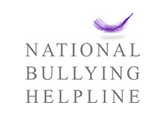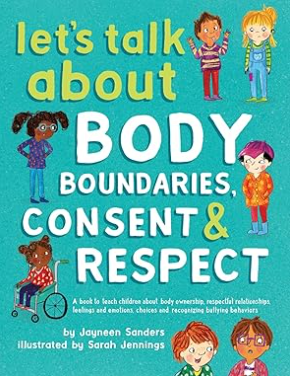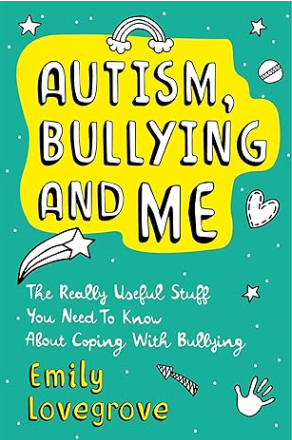did you know that 40% of young people were bullied in the last 12 months. 6% of all young people had experienced bullying daily 9% between once a week and once a month.
Bullying
** Stats above from research from the Department for Education looking at pupils in year 10**
It’s a sad part of growing up, and every parent’s nightmare to learn that their child is being bullied, or being the bully. And unlike the days where a child could have a break from bullying once they left school, the age of modern technology means that they can still be ‘attacked’ in what should be the safe space of their home, day and night, 24/7.
An estimated 1,544,000 children aged 10 to 15 years (34.9%) experienced an in-person bullying behaviour and 847,000 children (19.1%) experienced an online bullying behaviour, in the last year; there was no significant difference compared with the year ending March 2020.
Over half of children told their parent or guardian about the bullying they experienced in the last year, however, 18.1% who experienced an online bullying behaviour and 14.7% who experienced an in-person bullying behaviour did not tell anyone.
- There was no significant difference in the estimated number of girls (779,000; 36.0%) and boys (765,000; 33.8%) who experienced in-person bullying behaviours in the year ending March 2023. However, the prevalence of experiencing online bullying behaviours was significantly higher for girls (486,000; 22.5%) than boys (361,000; 16.0%).
(Office of National Statistics)
My child is being bullied - what can I do?
It’s heart-breaking for a parent/carer to learn that your child is being bullied, and the emotions range from anger to despair. How can you help? What can you do to stop it?
There are some common recommendations that organisations like the Anti-bullying Alliance recommend. I’ve also found a useful download for parents/carers that offers comprehensive advice – click here to view >
What is a school's responsibility regarding bullying?
By law, all state (not private) schools must have a behaviour policy in place that includes measures to prevent all forms of bullying among pupils. Every school must have measures in place to prevent all forms of bullying. Section 89 of the Education and Inspections Act 2006 provides that maintained schools must have measures to encourage good behaviour and prevent all forms of bullying amongst pupils.
From a legal standpoint, schools have a duty to do all they can to prevent and protect their students from all types of bullying. If they fail in this duty, they can be held legally accountable for the suffering of that child if they could have put measures in place to prevent it.
The first step is to access the school’s policy which should be readily available on the school website. Schools must also follow anti-discrimination law. This means staff must act to prevent discrimination, harassment and victimisation within the school. This applies to all schools in England and Wales, and most schools in Scotland.
Try and keep communication open and if this breaks down, it may be advisable to seek further support from a solicitor.
Can I report it to the police?
The police can only get involved if a crime has been committed so if any of the following has happened to you then, YES you should talk to the police.
• You have been physically assaulted or attacked
• Sexually assaulted or touched in a way that’s uncomfortable
• Someone has stolen from you
• You’re bullied because of your race, sexual identity or disability
• Someone has posted naked photos of you online.
• If you are threatened with a weapon or knife
I think my child might be a bully - what can I do?
This situation can create just as much stress and upset for all concerned, and sometimes it’s difficult to understand why it’s happening. You may feel angry or disappointed even, but it’s important to hear their side of the story.
The NSPCC website recommend:
- Letting them know that what they’re doing is unacceptable. Children and young people don’t always realise what they’re doing is bullying, or understand how much their actions have hurt someone.
- Help them realise how what they’ve done will have affected the other person. You could ask them how they think the other child is feeling, and to remember how they’ve felt when someone has said or done something unkind to them.
- Explain what you’re going to do next, such as telling their school, and what you expect your child to do now.
- Ask them whether they have any questions about why their actions need to change.
- Monitor your child’s behaviour and have ongoing conversations with them about how they treat others. Praise them when they show positive behaviours, but don’t be afraid to reinforce expectations too.
There is a National Bullying Helpline available Monday to Friday, 9am to 5pm - 0300 323 0169
I’ve found a useful PDF on the Anti-bullying Alliance website about the law and bullying in a range of settings. It covers:
- School duties and safeguarding
- School’s behaviour and anti-bullying policy
- Discrimination and the Equality Act
- Bullying outside of school
- Bullying on home to school transport
- Cyberbullying and the law
- Hate crime and incidents
- Bullying and the policy
- Criminal law
Vide their excellent PDF here >
There are also free workshops offered by Kidscape to help children cope with bullying. The session for young people is a 90-minute therapeutic workshop for 9-17 year-olds who are dealing with a bullying situation, or who have experienced bullying.
Organisations that offer information and support include:

The Anti-Bullying Alliance is a coalition of organisations and individuals that are united against bullying
Visit website >

Help and advice for children being bullied
If someone is bullying you, call us free on 0300 323 0169
Visit website >

You are not alone. Kidscape is an award-winning charity that offers practical help..
Visit website >

Help for children and young people
Call on 0808 800 5000.
Visit website >

The UK’s leading charity fighting for a world where no young person feels alone with their mental health
Visit website >

Call us free on 0800 1111
Visit website >
books that might help include:

Let's Talk About Body Boundaries, Consent and Respect


